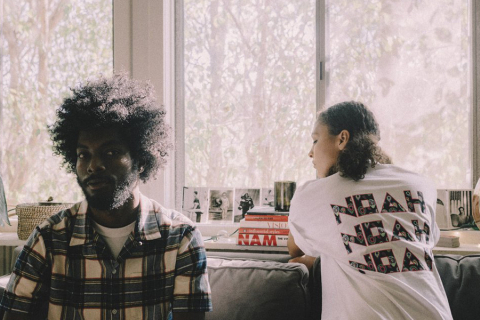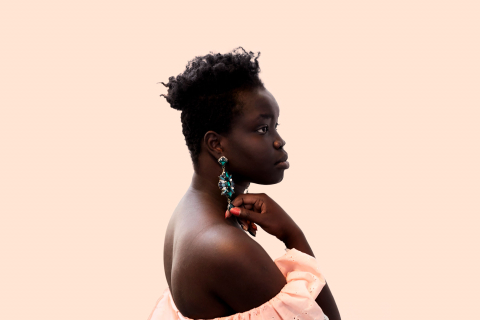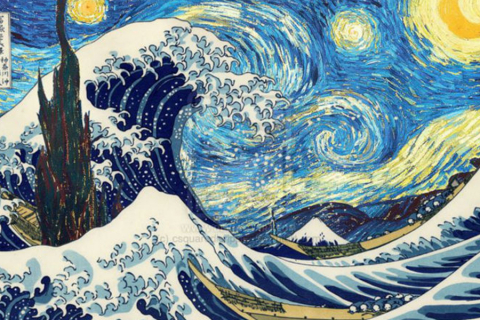
Lekk Porter is a Melbourne based creative who grew up in Wellington, New Zealand. Finding the creative community there inspiring but small they moved to Melbourne several years ago in pursuit of a more diverse and opportunistic community.
Their initial work was based exclusively around taking photos of landscapes, and documenting their friends at parties and festivals. But these days Lekk is best known for their work in fashion editorial, and has photographed campaigns for several local and international labels including Local Girl Gang, Psyklz Clubsport, Self Perform, Sacreflux, and No Fun Babe.
In school they learnt to take photos mostly using film, developing a love for the classic aesthetic that could be achieved with that medium. But after some years work as a fashion photographer, Lekk began to question the true nature of the industry, and set out to address industry’s lack of diversity by choosing to work only with people whose demographics are consistently underrepresented in mainstream media.
“I want the equal representation of people of colour to be normalised in fashion, and not in a way that is token.” They explained to me over the phone, “there are so many different types of brown models and bodies out there that aren’t being represented.”
Already well established in the Melbourne creative community, Lekk continues to create beautiful photos via personal projects and collaborations while staying true to her inclusivity ethos: depicting a wide range of different genders, body shapes, sizes, skin tones. We spoke to them about how it all started, how they think the industry could change, and what their ideal professional future would look like.
Sabina: Hey Lekk, where did you grow up?
Lekk: I grew up in Wellington, New Zealand, which lots of people call a smaller version of Melbourne; they’re very similar in terms of culture.
What was it about Melbourne that made you want to live here?
Honestly the pay… There are no jobs back home anymore and minimum wage is nothing compared to the living wage. So I thought Melbourne would be an easy stepping stone for a potential move somewhere else, but I love Melbourne and how multicultural it is so reckon I’ll end up being here for quite a while. There’s a lot more opportunity here in general and for photographers.
Did you always know you wanted to take photos?
To be honest, not really. When I was a teenager I thought photography wasn’t a very realistic career to pursue, and that were would be no way I’d ever ‘make it’. I never thought that I’d be doing what I’m doing now, but always liked taking photos.
What did you first start taking photos of?
My friends mostly. My grandma saved her pension and bought me a camera when I was twelve, so that gave me something interesting to do. I started mostly with taking portraits and documenting my life… I did go through a phase of Urbex photography when I first moved to Melbourne because I was like, “whoa there’re so many abandoned places here to choose from…”
Why do you mostly use film? What do you like about it?
I’ve actually been shooting film for eight years. It’s what I learnt on when I did it in high school, which was obviously cheaper than having to buy a digital. I think it helps that I learnt on film a lot; I do shoot digital occasionally and sometimes people want me to as back up.
However I do find that whenever I’m shooting digital I take a lot more photos, I’m never as happy with the tone and find myself doing a lot more editing. When I shoot film it comes back pretty much ready to be published; with digital the end product doesn’t look as real—it’s a lot more posed. We are capturing things as they are using film. My friend’s mum said that she feels like she is there when she looks at my photos, which is super cute. The use of film plays a big part when you want to make things appear as they are at the time and place.
Cool so how do you decide on your models?
Most of the time I shoot people I meet out or have found via Instagram. Or through word of mouth when a stylist or someone I’ve worked with previously introduced them. Their personality is also a huge part of it as well; if someone has a really awesome vibe then chances are they will be cool to shoot too.
Do you approach them or do they approach you?
Usually I’ll approach them, but occasionally it’s the other way around. I have a bunch of messages in my inbox on Insta that I haven’t opened, because white male models hit me up and I’m not really interested in shooting white men. I’m anxious to open them so they’re sitting there… I just don’t want to shoot that demographic, we don’t really need anymore photos of white dudes which is why I pretty much only shoot people of colour. I like to go beyond that too by including as many different types of people as I can—I love to see and shoot diverse bodies.
Who inspires or influences your work?
Mostly people that I meet; I’ve had a lot of conversations with other POC about shared experiences which has had a huge influence on my work. Those are the stories I want to tell with my photos, it’s not a coincidence that I shoot a lot of brown people, and I want to present people of colour as the strong and empowered people they are. The fashion industry needs to change in that regard; Comme des Garcons is one of my favourite brands and they’ve never used a non-white model on a runway. That is an asian brand we’re talking about as well—it sucks! I want equal representation of people of colour in fashion to be normalised.
That leads me to my next question about whether there is any particular aspect of the industry that you like or dislike, or that you hope to change using your practice?
Yeah, that would be exactly it… More representation of POC and not in a way that is token. I remember flipping through an agency catalogue once… I don’t really use agency represented models as subjects because prefer to shoot everyday people, but have maybe a couple of times because sometimes there are fresh faces that they want photographers to work with on test shoots. But anyway, I could only point out a few models of colour, which I thought was such a shame because there are so many different types of brown models out there that aren’t being represented.
Yeah totally, agencies can be the worst, especially in Australia; there’s actually quite a difference with that overseas but here it’s really hectic.
Yeah even in New Zealand there have been like a couple of agencies pop up with a wider range of representation.
What would be your absolute dream shoot?
I would love to shoot something for Lonely Hearts: that lingerie brand from NZ. I love them; I am so proud of New Zealand brands like that. Lonely have always been really forward thinking with their feminism and their intersectionality, and they shoot lots of different body types. They shot a model called Mercy recently who is in her sixties—they are great.
What are you working on now?
I’m editing a bunch of shoots that I did recently with with friends, but I’m hoping to move back to more documentary style photography. That is what I started out doing: documenting my life, then I went hard on fashion stuff. My cousins and I have been thinking of doing a big family trip back to Cambodia, I’m Cambodian, and doing like a documentary series about it. Because there is a lot of that sort of material out there from white photographers and I feel that it isn’t a very accurate representation of what those developing countries actually are. So I’d love to go there, shoot a series, and make an exhibition or a zine. Add a little more diversity, and do a few more projects on the side.
Follow Lekk Porter:
Instagram
Website
- By: Sabina McKenna
- Photography by: Lekk Porter



